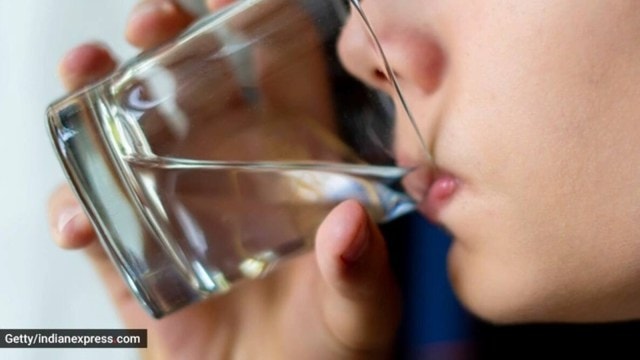📣 For more lifestyle news, click here to join our WhatsApp Channel and also follow us on Instagram
This is how much water males and females must drink in a day
Overhydration, or 'water intoxication,' can dilute sodium levels in the blood, leading to confusion, nausea, or weakness.
 Are you drinking enough water? (Photo: Getty Images/Thinkstock)
Are you drinking enough water? (Photo: Getty Images/Thinkstock)It is often one of the most-asked questions, eliciting different perspectives from everyone, with the most common one being 8 glasses or 3 litres daily. But since male and female physiology are different, are there differences in their water intake and hydration needs, too? Dr Amit Saraf, director, internal medicine, Jupiter Hospital, Thane, said that there isn’t a single rule that fits everyone.
The amount of water your body needs depends on your weight, activity level, climate, and health. “What you lose through sweat, urine, and breathing needs to be replaced, but that loss varies among individuals. On average, men need about 3 to 3.7 litres a day, while women need around 2.5 to 2.7 litres. So yes, those numbers are generally correct, but they should be viewed as a guideline, not a strict rule,” said Dr Saraf.
So, should we actually count glasses, or just drink when thirsty?
Thirst is a late signal; by the time you sense it, your body is already somewhat dehydrated, stressed Dr Saraf. “A better strategy is to sip water throughout the day instead of drinking large amounts at once. If your urine is pale yellow, that’s a good indication of proper hydration. Dark yellow or amber urine usually means you need to drink more fluids,” said Dr Saraf.
 Are you taking care of your hydration needs? (Photo: Freepik)
Are you taking care of your hydration needs? (Photo: Freepik)
Can we get our daily hydration from other sources, too?
Absolutely. Fruits, vegetables, soups, buttermilk, and coconut water all contribute to your daily fluid intake. “About 20 to 30 per cent of your hydration can come from food. However, sugary drinks and too much caffeine can actually dehydrate you, so it’s best to limit those,” said Dr Saraf.
Can drinking too much water be harmful?
Yes, said Dr Sarf. “Overhydration, or ‘water intoxication,’ can dilute sodium levels in the blood, leading to confusion, nausea, or weakness. This is rare, but it can happen, especially among athletes or those who drink excessive water without electrolytes,” said Dr Saraf.
What’s the simplest hydration rule to follow every day?
Listen to your body, but take initiative. “Keep a bottle nearby, sip throughout the day, and adjust your intake based on the weather and your activity level. In short, consistency matters more than counting litres,” said Dr Saraf.
DISCLAIMER: This article is based on information from the public domain and/or the experts we spoke to. Always consult your health practitioner before starting any routine.
📣 For more lifestyle news, click here to join our WhatsApp Channel and also follow us on Instagram


- 01
- 02
- 03
- 04
- 05

























